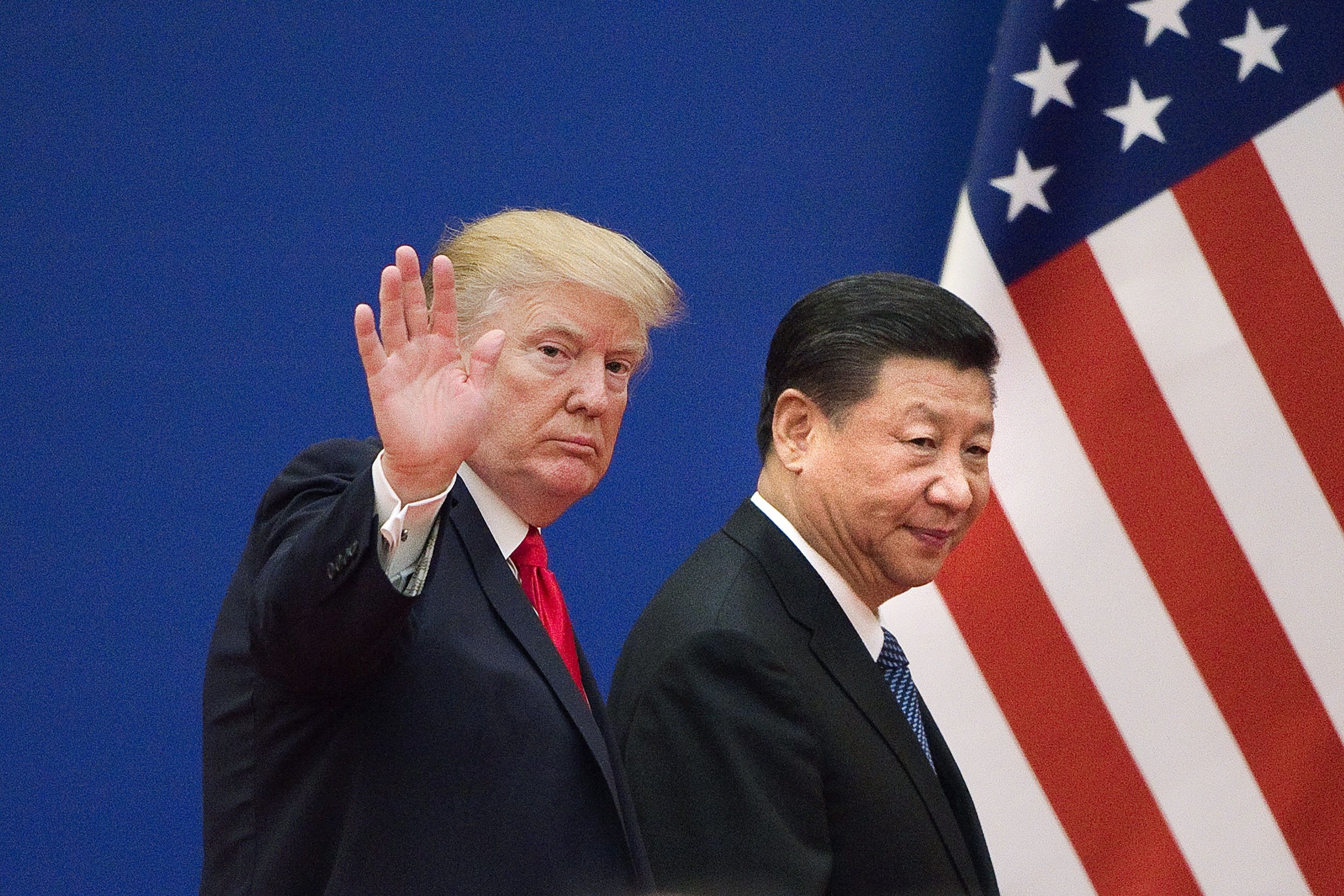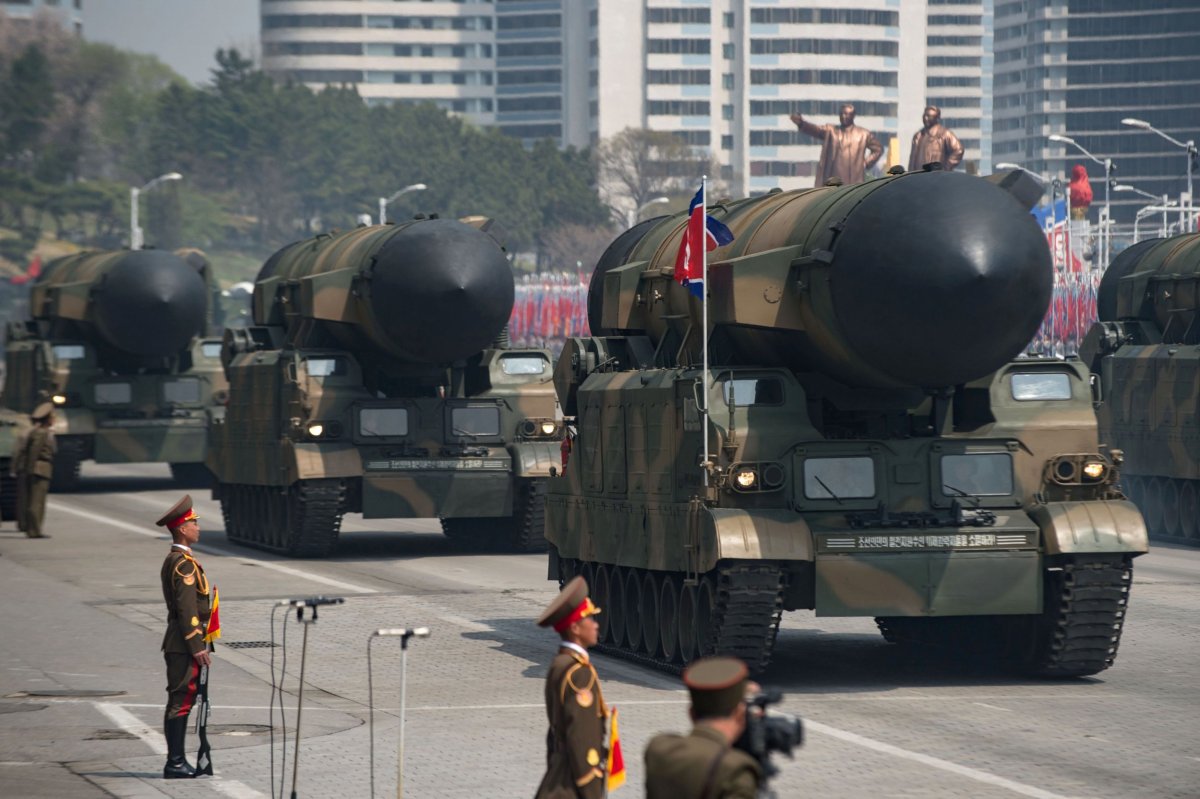
The odds of a catastrophic war on the Korean Peninsula are increasing by the day. The Trump administration is determined to deny North Korea the ability to threaten the United States with nuclear weapons. On the cusp of reaching exactly that milestone, supreme leader Kim Jong Un is in no mood to bend to U.S. pressure and halt—much less roll back—his weapons program. Neither side is proposing concessions to ease tensions, and Washington has announced that time is running out for nonmilitary options to end the standoff.
The consequences of a conflict would be devastating. By conservative estimates, upwards of 300,000 people would die in the first days of the war. Millions of refugees, a widespread humanitarian crisis and at least a trillion dollars in reconstruction costs would follow. If that's not challenging enough, it is unlikely that U.S. and South Korean troops would be the only foreign forces inside North Korea.
China isn't going to start a conflict with North Korea, but if instability or war breaks out, it won't sit on the sidelines either. With much at stake, growing ambitions and an increasingly capable military, chances are good that China would send tens of thousands of police and soldiers into North Korea—an eventuality for which the United States today is simply not prepared. Both to avoid an inadvertent military clash with China and to protect America's long-term interests in Asia, the Trump administration should urgently develop a post-conflict plan that reflects its preferred end state for the Korean Peninsula.
Despite a 1961 defense treaty, China is not going to intervene in North Korea in an act of selflessness. Relations between Beijing and Pyongyang have deteriorated rapidly in recent years: Kim has yet to meet with Chinese President Xi Jinping; the regime has purged high-ranking officials with close ties to Beijing; and North Korea has rebuffed recent Chinese attempts to resuscitate bilateral ties.
China's intervention would have at least three goals. First: Manage refugee flows. In fact, there are credible reports that the Chinese government is already constructing refugee camps in Jilin province, just across the border. Second, the People's Liberation Army would attempt to secure major nuclear and missile facilities. In this endeavor, the United States and China have shared interests in preventing North Korea's deadly weapons from going missing or falling into the wrong hands.
Third, and most troubling for the United States, China would likely establish a large-scale military presence to maximize its influence in subsequent discussions about the political and military future of the Korean Peninsula. As Russia has demonstrated in Syria, boots on the ground offer considerable sway over political futures.
The near-inevitability of a Chinese military intervention has important implications for U.S. strategy. It is imperative that the Trump administration do what it can to open discussions with China about how each side plans to manage the post-conflict chaos and instability. Joint planning is a bridge too far, but dedicated communication channels can, at a minimum, de-conflict each other's operations. A more ambitious goal would be to agree upon a division of labor, for example, over securing nuclear materials.

Secretary of State Rex Tillerson has indicated that such conversations with Beijing may be underway, but by all accounts have remained preliminary and insufficient. China has historically been resistant to contingency talks, primarily because of the signal it would send about its willingness to see Pyongyang fall. But this may be changing. North Korea is the most hotly debated foreign policy issue in Beijing, and—in sharp contrast to issues like Taiwan and the South China Sea—the leadership has clearly made a decision to allow academics, think tanks and even government officials to call for new and different approaches. With more success than was imagined possible in recent years, the Trump administration has used pressure and diplomacy to get Beijing to sign up for harsher sanctions on North Korea. A similarly concerted push for contingency planning could yield positive results.
However, Washington has to do its own homework first. Beyond core military tasks, there are few indications that the Trump administration has prepared for the massive humanitarian and economic challenges that will almost certainly arise immediately following the initial war. The lack of a plan, much less one that could be coordinated with Beijing, only increases the risk that U.S. and Chinese forces could end up in dangerous proximity and uncertain of each other's intentions.
More fundamentally, and perhaps surprisingly, the U.S. government still lacks a consolidated view about its own long-term vision for the peninsula, including the future of the alliance with South Korea and the disposition of forward-deployed U.S. forces. If the Trump administration doesn't move fast to remedy this deficit, Washington could be scrambling with insufficient time to draw up proposals that protect long-term U.S. interests and, crucially, coordinate with South Korea. China in the meantime would be using its leverage and first-mover advantage to thwart most, if not all, major elements of its own worst-case outcome: a unified Korea—governed from Seoul, allied with the United States, stationing American troops and in possession of nuclear weapons.
The United States won't be able to stop the Chinese military from entering North Korea, nor should it try. But with sufficient advance planning, which should begin now, Washington can lower the risks of inadvertent conflict with China, and reduce Beijing's ability to dictate the terms of America's future role in Northeast Asia. In this instance, failing to prepare truly is preparing to fail.
Ely Ratner is the Maurice R. Greenberg senior fellow for China studies at the Council on Foreign Relations.
Uncommon Knowledge
Newsweek is committed to challenging conventional wisdom and finding connections in the search for common ground.
Newsweek is committed to challenging conventional wisdom and finding connections in the search for common ground.
About the writer
To read how Newsweek uses AI as a newsroom tool, Click here.








